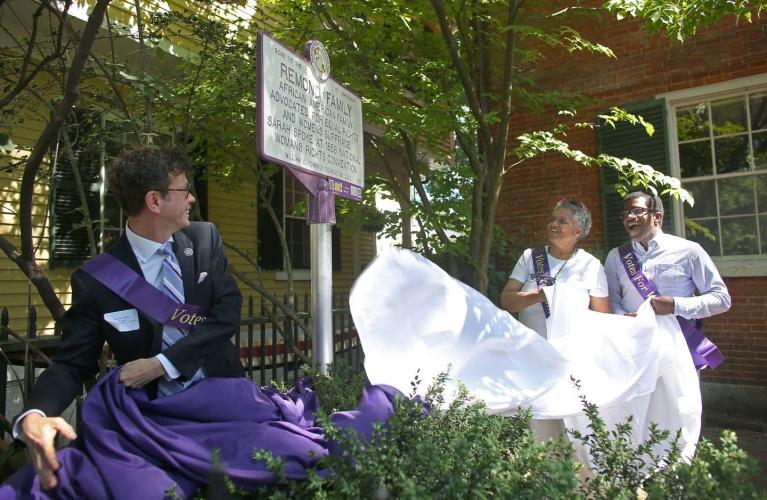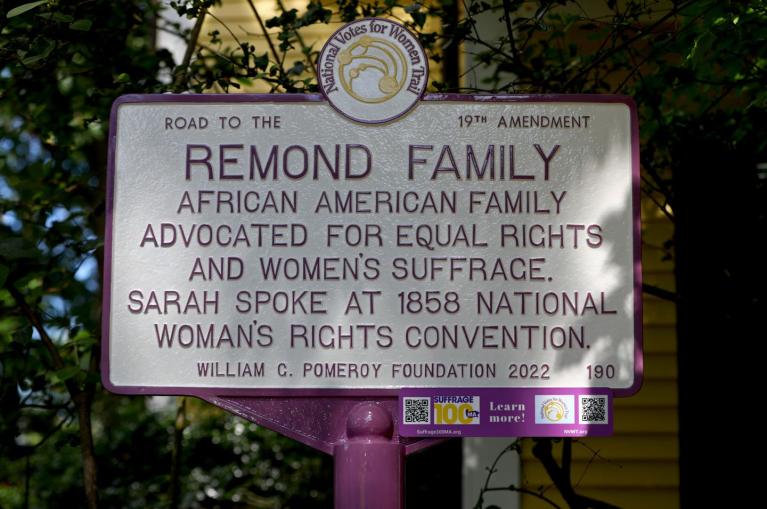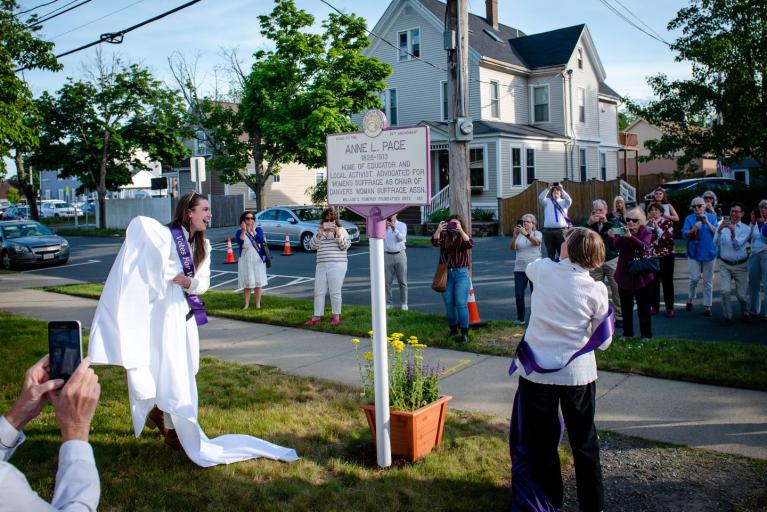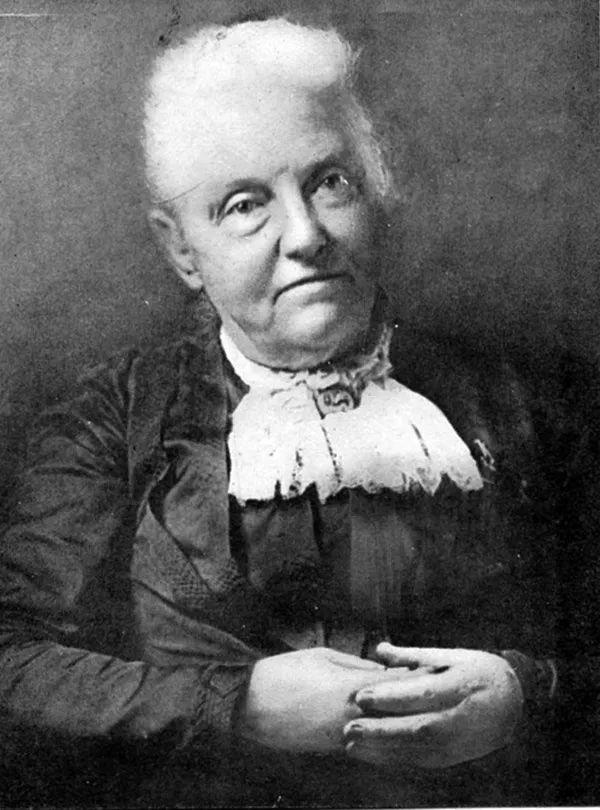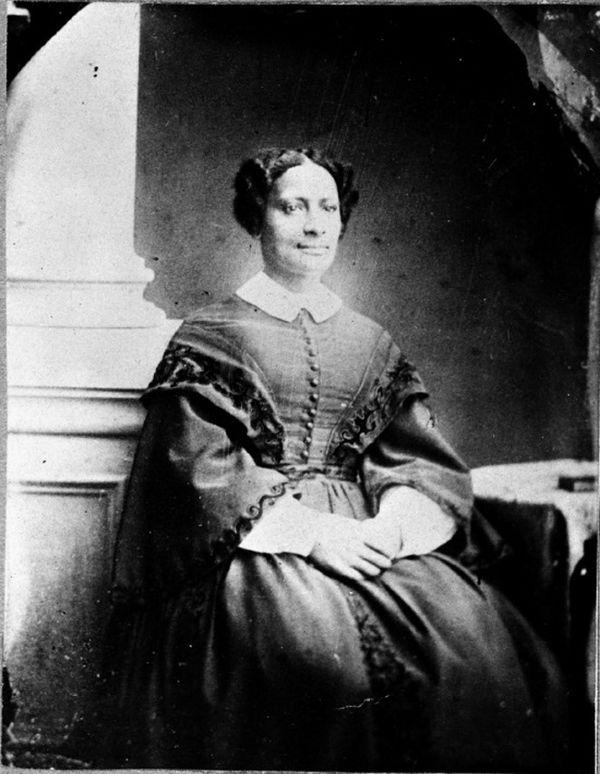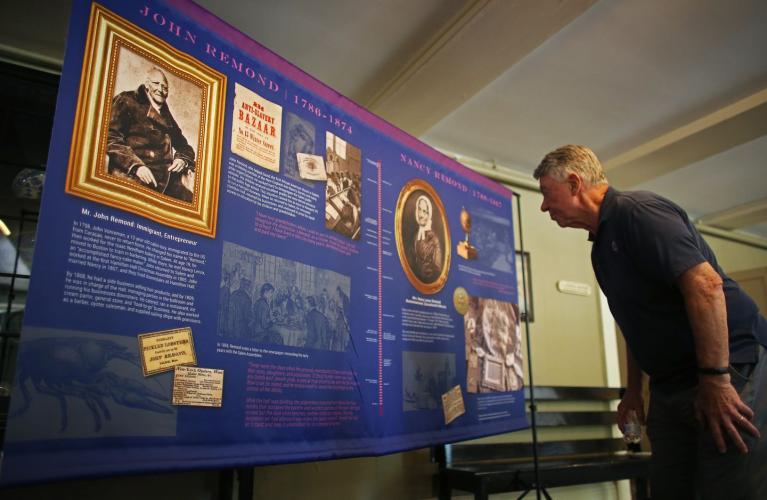Editor's note: the following story originally appeared in The Boston Globe, written by John Laidler.
She was a pioneering educator who helped establish kindergarten in the United States. But longtime Danvers resident Anne L. Page also had a passion for another cause: Giving women the right to vote.
In the early 1900s, local suffragists often met at Page’s Danvers Square home, and she represented the town at annual meetings of the Massachusetts Woman Suffrage Association.
“Equal suffrage she believed in with a calm faith,” James L. Hughes wrote in a 1924 book about American kindergarten trailblazers, observing that till the end of her life, Page was “interested in all reasonable movements for the fuller development of women.”
Largely forgotten today, Page’s contributions to the suffrage movement and women’s equality are being brought to life as a result of an historical marker unveiled in May outside her former home, one of a series of such memorials being installed nationally to commemorate people, places, and events important to women gaining the right to vote.
Sheila Cooke-Kayser, volunteer chair of educational programming for the Danvers Historical Society, is excited Page — and others who toiled for women’s suffrage — are earning recognition.
“I think it’s extremely timely,” she said, noting the efforts in many states to restrict voting access and — in the wake of the Supreme Court’s recent decision overturning Roe v. Wade — to ban or sharply limit the right to an abortion. ”We really need to show young women what their predecessors went through to ensure them equal rights, and how those rights can easily be lost.”
More than 200 markers — five in Massachusetts — are being installed through the National Votes for Women Trail. An initiative of the National Collaborative for Women’s History Sites, the trail commemorates the centennial in 2020 of the adoption of the 19th Amendment guaranteeing women voting rights, and includes the creation of a digital database of more than 2,000 historical sites associated with the suffrage movement.
The Massachusetts markers also include one unveiled June 23 in Salem honoring the Remonds, a prominent free Black family that was active in the suffrage as well as abolitionist movements.
Set to be installed this fall are markers for Sojourner Truth in Northampton, Maria Baldwin in Cambridge, and Sarah Wall in Worcester, according to Michelle Juralewicz, program coordinator for Suffrage100MA, which is coordinating the marker project in Massachusetts.
“The full story of the suffrage movement is largely unknown to the general public and these markers provide an opportunity for people to learn about the people involved, to learn about suffrage events, and hopefully to inspire them to want to learn more,” said Fredie Kay, founder and president of Suffrage 100MA.
Kay hopes the initiative also educates people that achieving voting rights for women took more than 70 years of struggle by thousands of suffragists — and about the long road women have had to travel in seeking overall equality.
“For women in the 1800s, equity was not even a word that was used. This was a time women were expected to be seen and not heard. So for women in that era to argue that they needed a voice and should have a vote was remarkable,” she said, adding that many suffragists also embraced other social causes, including abolition and education reform.
SuffrageMA100 was organized in 2010 to plan activities in Massachusetts commemorating the 2020 centennial, including the often-overlooked contributions of women of color to the suffrage movement. The primary event — a march on Boston Common — had to be canceled due to COVID-19.
The organization is continuing with a focus on creating a Massachusetts women’s history center and advocating for increased voter access and other rights, according to Kay, a Needham resident.
“We realized our work is not done. Voting rights are still under attack,” said Kay, who hopes the example of the suffragists will inspire people to try and protect those rights. She said the group also wants to be part of the fight against the push to roll back reproductive rights in the wake of the Supreme Court’s June 24 decision overturning the 1973 ruling that had established a constitutional right to an abortion.
“Thankfully, there’s been an enormous amount of successful work in Massachusetts by a number of organizations and legislators to ensure the protection of women’s reproductive rights and health care in Massachusetts,” she said. “We applaud those efforts and the recent signing of the bill expanding abortion care access. Yet we all must all continue to be vigilant during these times when reproductive rights are at such great risk.”
Kay noted that preserving voting and reproductive rights was the theme of this year’s Suffrage100MA’s annual Women’s Equality Day event on Aug. 24, which commemorates the adoption of the 19th Amendment.
The bid to install a marker for Page (1832-1913) was initiated by the Danvers Historical Society, which maintains her family home as an historic house.
The society acquired the Page House in 1914 to honor Page’s grandfather, brickmaker and Revolutionary War veteran Jeremiah Page, who built it in 1754. But in recent years the group has added more programming about Anne Page based on extensive research on her life by Cooke-Kayser, who also led the effort to seek the memorial.
“I became intrigued by her story and her many accomplishments and saddened that Danvers had never done anything to recognize this incredible woman,” Cooke-Kayser, a retired National Park historian, said at the unveiling of the Page marker.
After completing high school in the 1850s, Page established in her home one of the nation’s first kindergarten schools. In 1877, she cofounded an organization promoting kindergarten in the US and in 1885 started her own school to educate women to teach it. That decade she also helped found a public kindergarten school in Danvers.
“After reading what others wrote about Anne, I was not surprised that she was a suffragist, " Cooke-Keyser said of Page, who also helped found the Danvers Women’s Association. “The love and respect of the many women who attended Anne’s academy to educate future kindergarten teachers also led many to become involved in the fight for the right to vote.”
Cooke-Keyser said a note Page wrote to one of her education students in 1900 offers a window into the activist spirit that led her to become a suffragist.
“You must not get out of tune with the 20th century. It will be a grand time,” wrote Page, then 72. “I will love it. It is a time for stirring things up and when they are well stirred and settled again, they will be better than ever they were.”
The Remond family marker sits outside Hamilton Hall in Salem, the Chestnut Street building local Federalists erected in 1805 for dances, meetings, and other activities, according to Michael Selbst, board president of the nonprofit that today maintains the historic house as a site for educational programs.
John and Nancy Remond were longtime caretakers of the hall and ran their catering business out of the house — where they also resided for many years — winning local renown for their culinary and business skills, Selbst said.
The Remonds also left their mark as prominent activists. John and Nancy Remond moved the family to Newport, R.I., in 1835, unhappy that Salem had racially segregated its schools. The family returned in 1843 when Charles and Nancy helped restore school integration. John was a lifelong member of the Massachusetts Anti-Slavery Society.
Charles Lenox Remond, their eldest child, was among the first Black abolitionist lecturers and advocated for allowing women to join in that fight, including at the 1840 Antislavery Convention in London. His sister, Sarah Parker Remond, belonged to the Salem Female Anti-Slavery Society and the Massachusetts and New England Anti-Slavery societies, and spoke widely about racial and gender equity, including at the 1858 Women’s Rights Convention in New York.
Caroline Remond Putnam, another sibling, served in leadership positions for the American and Massachusetts Anti-Slavery societies, and spoke at an annual meeting of the New England Woman Suffrage Association.
“As an organization, we have done a lot of self-reflection in recent years on our own history and that has given us a much larger appreciation of the importance of the Remond family to Hamilton Hall as well as Salem,” Selbst said. “To have this tangible marker of their contributions outside our building is so wonderful.”
Adelaide Solomon-Jordan, a cousin of the Remond family and a historian and biographer of New England Black history, is thrilled to see the Remond family honored with the marker.
“I think it’s a long overdue recognition of the incredible contributions that this family made, and in a sense continues to make,” the Maine resident said, citing the increased attention that is being focused on the role that people of color played in the abolition and suffrage movements.
“It’s important to remind people about what was done back then,” Solomon-Jordan said, and about the importance of fighting to keep intact the freedoms earlier activists helped achieve. “If they did it back then, we can do it now.”
John Laidler can be reached at laidler@globe.com.
